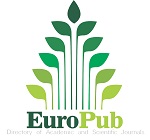A Comparative Analysis of the Approaches and Methodologies Regarding the Quranic Interpretation of the "Hudood" (prescribed limits) Related to Adultery in "Ma'ariful Qur'an" and "Tadabbur al-Qur'an" in the Light of Surah An-Nur حدود اللہ میں حدزنا سے متع
Abstract
"Ma'ariful Qur'an" and "Tadabbur al-Qur'an" are two renowned exegeses of the Quran authored by scholars and interpreters who have delved into the Quran's interpretation. Both have their unique styles and focus on similar topics, but they differ in their specific approaches and the illumination they provide."Ma'ariful Qur'an" is the exegesis of the Quran authored by Mufti Muhammad Shafi, a well-known Pakistani scholar and religious figure. In this exegesis, he elucidates beliefs and practical matters in the light of the Quran. His interpretation is considered reliable and effective, making Quranic explanations easily accessible to the general Muslim population. Mufti Muhammad Shafi's exegesis in "Ma'ariful Qur'an" covers a wide range of topics and presents general information and phrases in simple and clear language. "Tadabbur al-Qur'an" is the exegesis of the Quran by the renowned Pakistani scholar Maulana Amin Ahsan Islahi. In this exegesis, he focuses on contemplation and deep understanding in the light of the Quran. His central influence is a thoughtful and intellectual approach, and he intertwines Quranic verses with various aspects of life. His exegesis, "Tadabbur al-Qur'an," endeavors to facilitate a profound understanding of the meanings and Quranic content. Both exegeses are important and shed light on various subjects for different communities. "Ma'ariful Qur'an" is more detailed and presents Mufti Muhammad Shafi's explanatory approach, while "Tadabbur al-Qur'an" is more contemplative and represents Maulana Amin Ahsan Islahi's interpretative method.
Keywords- Quranic Interpretation of the "Hudood, Adultery in "Ma'ariful Qur'an & Surah An-Nur











